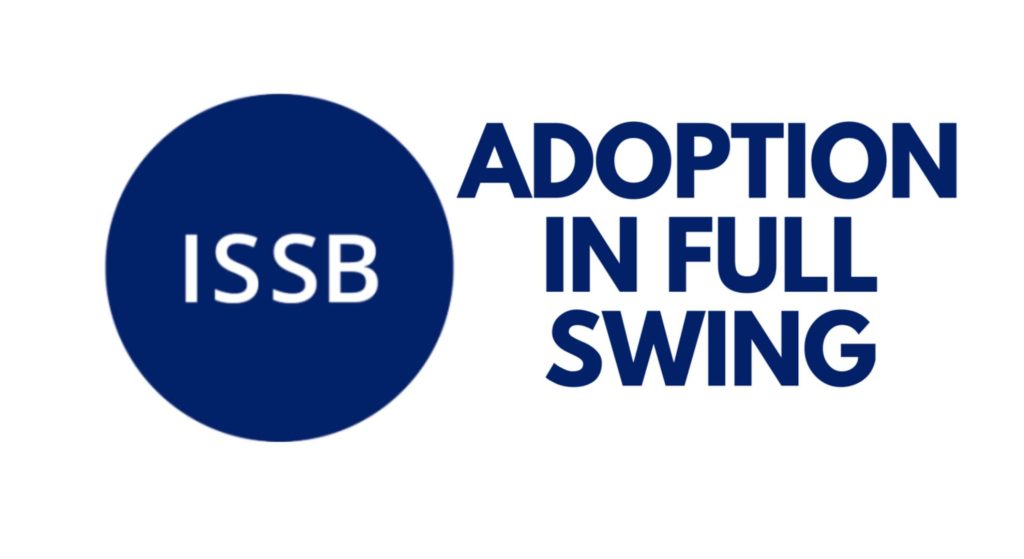A new The International Sustainability Standards Board (ISSB) report said that more than 1,000 businesses incorporated and 30 jurisdictions were nearing incorporating the ISSB standards into their legal or regulatory frameworks, last fiscal.
The report submitted by the IFRS Foundation to the Financial Stability Board (FSB), highlighted the alignment of disclosures with the Task Force on Climate-related Financial Disclosures (TCFD) recommendations.
It must be noted that the IFRS Foundation took over the responsibility of documenting the progress of climate-related disclosure after the disbandment of the TCFD in 2023.
Key findings:
As businesses worldwide focus on climate-related disclosures, 82% of companies released information that complied with at least one of the 11 TCFD recommendations.
Few companies, however, make disclosures that address the company’s climate-related governance, strategy, risk management, or metrics and targets, with less than 3% of these companies reporting in accordance with all 11 TCFD recommended disclosures.
Investors are not currently receiving the information required to evaluate and price climate-related risks and opportunities, if the information omitted is material.
Furthermore, the report explores companies transitioning from TCFD recommendations to ISSB Standards, and the progress of 30 jurisdictions in incorporating ISSB Standards into their regulatory frameworks. These include:
- Scope 3 GHG emissions disclosures are recognized by 29 jurisdictions, including those that have finalized climate-related proposals. Industry-specific disclosure requirements are also valued by 28 jurisdictions, with some extending transitional reliefs. Only two out of 30 jurisdictions have initially announced their intention to make industry-specific disclosure voluntary.
- Certain jurisdictions initially focus on disclosing climate-related risks and opportunities. Jurisdictions are moving closer to ISSB Standards to align with stakeholder demands and ensure comparability of disclosures, moving closer to the global baseline than in initial proposals. Investors are keen on comprehensive disclosures about all sustainability-related risks and opportunities, not just climate-related risks and opportunities. 90% of jurisdictions have included or are considering disclosure requirements for sustainability-related risks and opportunities.
- Stakeholders, including investors and businesses with cross-border operations, fear regulatory fragmentation if jurisdictions change ISSB Standards. They also advocate for simplified global reporting regimes and alignment with global baselines.
Emmanuel Faber, Chair, ISSB, said, “This progress report underscores the significant and encouraging progress in disclosure of climate-related information. But further action is needed to address the fact investors are still not receiving the information they need to assess and price appropriately climate and other sustainability-related risks and opportunities. Through jurisdictional initiatives and the voluntary choices companies are making, often in response to investor demand, we continue to see momentum build.”
The report provides a significant context for the ISSB Standards’ transition to regulatory adoption following IOSCO’s July 2023 endorsement. There should be more reliable, significant sustainability-related data available for use in international capital markets as a result of the strong jurisdictional progress made toward the introduction of sustainability-related disclosure requirements through the adoption or other use of ISSB Standards and the change from recommended to required disclosures.











